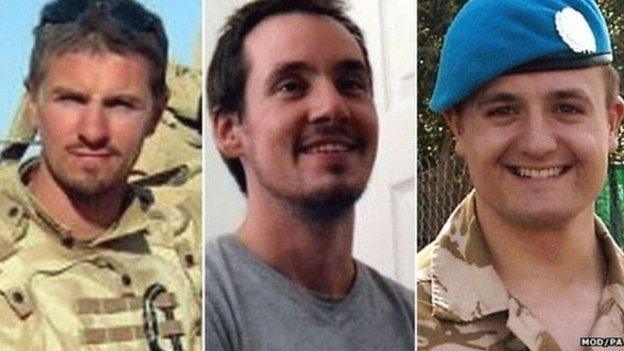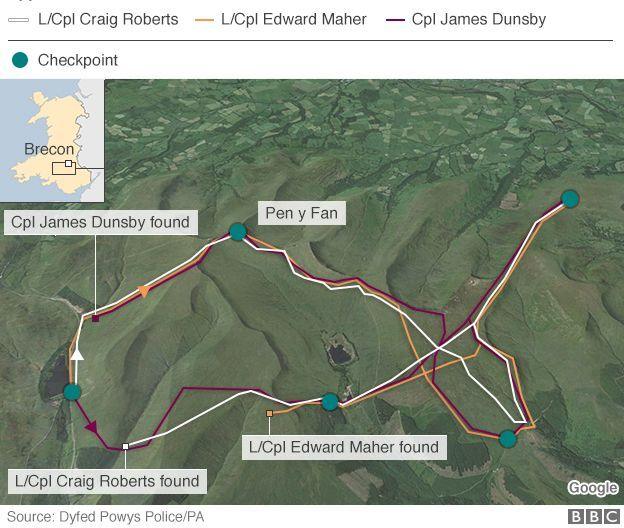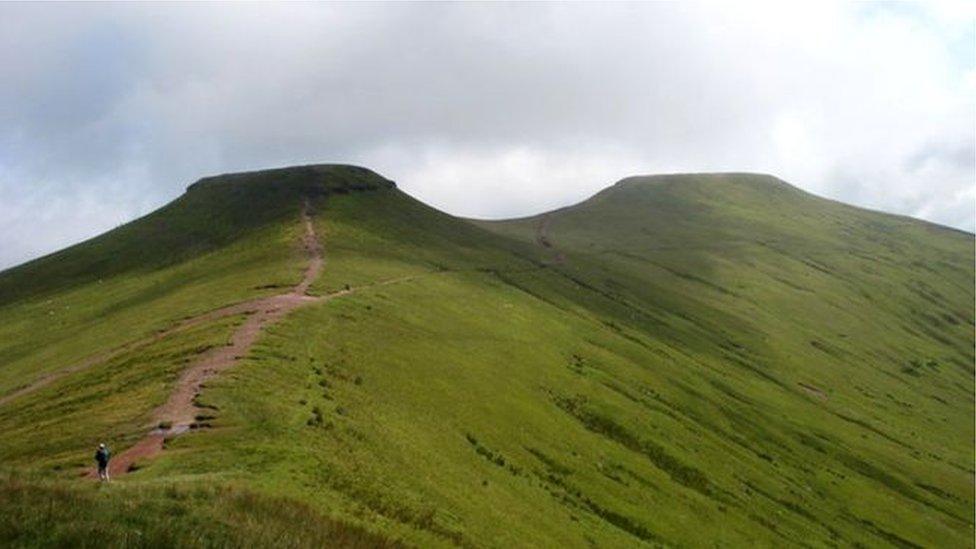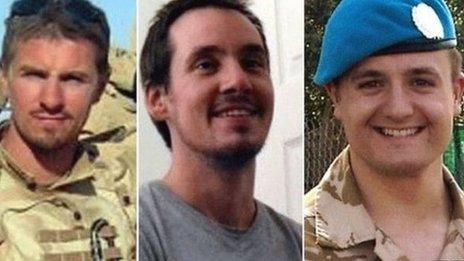Coroner issues warning over more SAS selection deaths
- Published

Cpl James Dunsby, L/Cpl Edward Maher and L/Cpl Craig Roberts died in July 2013
There is a risk of future deaths on SAS selection marches unless action is taken, the coroner who presided over the inquest of three reservists said.
Louise Hunt has released 13 issues for the Ministry of Defence to address.
Earlier this month, she ruled L/Cpl Edward Maher, L/Cpl Craig Roberts and Cpl James Dunsby died as a result of neglect on the 16-mile march.
The Brecon Beacons march was held on one of 2013's hottest days. All three suffered the effects of hyperthermia.
The inquest in Solihull, West Midlands, heard that, had organisers strictly followed the MoD's code of practice, the march would have been cancelled after two men - not among those who died - were withdrawn from the exercise shortly after midday due to heat sickness.
Army personnel told the coroner they were not aware of the contents of the MoD guidelines and had been told not to bother reading them.
The Army accepted it did not carefully manage the risks involved in the exercise but said changes have been made.
The test was the second time L/Cpl Roberts, from Penrhyn Bay, Conwy, and L/Cpl Maher, of Winchester, had attempted SAS selection.
Failed attempts were made on the hills to save L/Cpl Roberts while L/Cpl Maher had already died by the time help arrived.
Cpl Dunsby, 31, of Trowbridge, Wiltshire, was found collapsed near the finish and died in hospital two weeks later.

The soldiers collapsed during the march while carrying 50lbs (22kg) of equipment

Coroner's concerns
The new tracker system's function showing that a man is slow or static does not work and those in charge of the exercise have no way of telling that
Nothing has been done to tackle the tracker system problem
Witnesses did not know about heat illness guidance and the MoD does not have a clear plan to detect the condition or to tell commanders about the importance of following the rules
Commanders had no heat illness guidance training and there was no clear system to check that officers know about it
Commanders did not know that their staff had not been trained in carrying out risk assessments
Commanders did not understand weather forecast implications and the importance of heat illness
Commanders did not know that reservists' build-up to their test week was different to the signals regiment. None of the signals regiment suffered heat illness
The system for reporting heat illness is disjointed, which means cases are missed
No commander had tackled the problems with the tracker system
Lessons were not learned after previous deaths and no recommendations were followed. These included conclusions that casualties should be treated within the "golden hour" and the tracker was not fit for purpose
There is no system to ensure temperature measurements from nearby Sennybridge are given to commanders
No doctor experienced in heat illness was involved when drawing up the plan for the exercise
There was no liaison before the exercise with the NHS and mountain rescue
In the report, she said: "During the course of the inquest the evidence revealed matters giving rise to concern.
"In my opinion, there is a risk that future deaths will occur unless action is taken."
Military chiefs have been given until 15 September to explain the action they are taking to prevent future deaths.
They must also set out their timetable or tell the coroner why they have decided not to act.

The Brecon Beacons, in Powys, has been used by the military since Roman times
- Published15 July 2015

- Published14 July 2015
